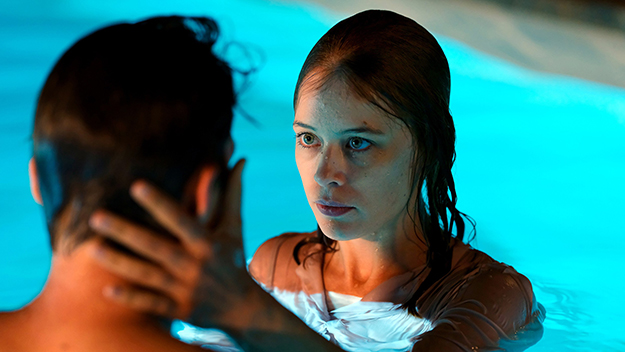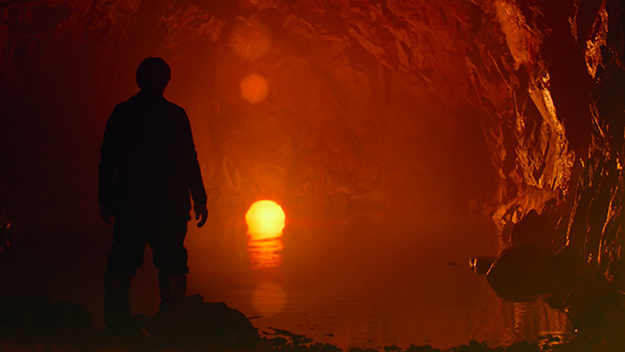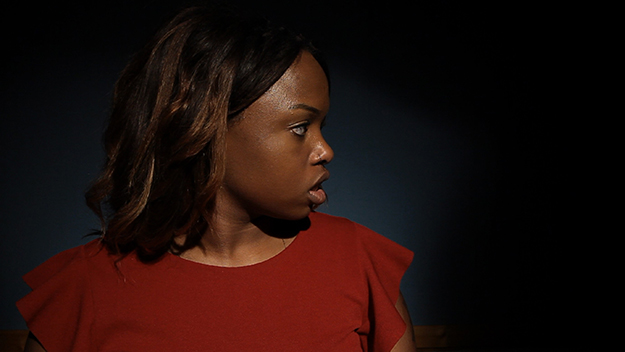Dispatch: Berlinale 2020 Preview

Undine (Christian Petzold, 2020)
Three years ago, 79 German filmmakers signed an open letter to the Berlin International Film Festival and its then-director Dieter Kosslick calling for a drastic reevaluation of its artistic vision and programming priorities. With signatories to the letter including Christian Petzold, Maren Ade, and Fatih Akin, it was only the latest in a series of broadsides against Kosslick and his team’s creative and administrative decisions, which contributed in no small part to the Berlinale’s diminished artistic reputation among the international film community over the course of Kosslick’s 19 years as festival head. By the time the letter made the rounds, Kosslick’s exit from the Berlinale had already been announced; in order to reestablish the festival’s foothold, the letter proclaimed, his successor would have to be “an exemplary curator who has a passion for cinema, and who has the best connections across the globe.” Enter Carlo Chatrian, an Italian film programmer and former critic who, over the previous six years, had elevated Switzerland’s Locarno Film Festival to arguably the premier showcase for adventurous international art cinema anywhere in the world, while simultaneously focusing the festival’s robust retrospective program around an expertly curated selection of classic Hollywood auteurs. With Chatrian’s hiring confirmed in mid-2018, most critics and industry professionals spent last year’s Berlinale looking ahead to 2020, when Chatrian, alongside his entire Locarno programming team, and new executive director Mariette Rissenbeek would officially take over the festival.
Chatrian’s appointment is just one of many changes for the Berlinale, which this year celebrates its 70th edition. Also taking over individual programs within the festival are longtime programmer Michael Stütz, who now heads the Panorama section (comprising films of an “explicitly queer, explicitly feminist, explicitly political” nature), and critic and curator Cristina Nord, who’s taken over the independently organized Berlinale Forum for experimental and boundary-pushing cinema, which itself is celebrating its 50th anniversary this year. (To celebrate, the Forum will be re-screening the entirety of their inaugural 1971 program.) As at most marquee festivals, however, a majority of the eyes will be on the competition. If one thing could be said to have prompted the open letter to Kosslick in the first place, it’s the makeup of the Berlinale’s most high-profile section, which many felt had become (save for a few annual gestures to token auteurs) far too safe in recent years. “Perhaps people don’t realize the degree of compartmentalization that has existed at the Berlinale,” Mark Peranson, Chatrian’s head of programming, notes. “Each section has been operating independently both in terms of programming and organization, with, in the past, the somewhat unifying factor being that all of the section heads also sat on the committee to choose the films in competition. Doing away with that was the first decision that Carlo made.” Now, with just a single, seven member selection committee, Chatrian is ostensibly free to craft a more productively idiosyncratic competition. “We took some chances,” Chatrian tells me. “We invited some films knowing that they may not please everyone. But we never chose in favor or against one film in order to state a difference from the past.”
On paper at least, this year’s competition looks to be as exciting as any in recent memory, with new films by Abel Ferrara (Siberia), Philippe Garrel (The Salt of Tears), Rithy Panh (Irradiated), Christian Petzold (Undine), Mohammad Rasoulof (There Is No Evil), and Hong Sangsoo (The Woman Who Ran)—not to mention the long-awaited return of Tsai Ming-liang, whose new film Days is the Taiwanese master’s first narrative feature since 2013’s Stray Dogs. As Peranson reiterates, however, “we didn’t intend to replicate, nor even break from anything because the films we chose are a factor of who we are as programmers and also, maybe more, a factor of what films we have to choose from.” Indeed, while Cannes may still inevitably attract the lion’s share of high-profile international auteurs, Chatrian and Peranson’s backgrounds as highly selective programmers and critics (Peranson is editor-in-chief of the notoriously difficult-to-please Canadian film magazine Cinema Scope) could bode well for the Berlinale as a coveted destination for established filmmakers who may have in the past held their films’ world premieres for somewhere like Cannes or Venice. (All of Garrel’s most recent features, for example, have premiered at either Venice or Cannes, while Panh and Rasoulof have become Cannes regulars over the past decade.)

Siberia (Abel Ferrara, 2020)
Going into this year’s Berlinale, one of the main points of discussion among onlookers was how Chatrian and his team would integrate into the festival’s existing infrastructure—particularly the Forum, which focuses on the sort of bold and unconventional cinema that Chatrian championed at Locarno. “Working along with other curators—not only in Forum, but also Panorama, Berlinale Series, Short Films, and Perspective Deutsches Kino—is a new setting for me,” Chatrian says. “Cristina and I were in discussion a lot. We sometimes even watched films together. But for the selection we worked independently. We agreed that it is important that Forum does its own selection without any interference.” For Nord, the collaboration was “an enriching experience: dialogue-oriented, friendly, and respectful. When more than one section was interested in a film, we [discussed it], not so much taking into account each section’s interests, but those of the film.” At the same time, she continues: “I feel that we have to rethink the Forum’s character: what makes it distinctive in this new situation.”
While the Forum’s selection committee under Nord comprises a mix of new and existing team members, she does point to one “discernible trait,” namely “the idea that cinema is a medium that allows us to reflect upon the societies we live in. Not via thematically oriented films or narrative structures that revolve around issues within society, more in the sense that a certain awareness and sensitivity are translated into specific aesthetic strategies.” Nord singles out Spanish filmmaker Javier Fernández Vázquez’s A Storm Is Coming as one particularly potent example of this approach, while at a glance a number of other names in the program—Romania’s Radu Jude, Japan’s Kazuhiro Soda, Spain’s Lois Patiño, Canada’s Joshua Bonnetta—suggest that this identity will be situated at the intersection of fiction and documentary practices, a space especially conducive to interrogating social and political realities past and present.
Another development at the Berlinale is the launch of Encounters, a new competitive section for “aesthetically and structurally daring works from independent, innovative filmmakers.” According to Peranson, Encounters “began with the idea that it would be good for the Berlinale to have a second competition. Up to this point in the official selection of the Berlinale, there was no place for a certain kind of film—films that, just to use a shorthand example, we might have shown in the Locarno competition but did not, for whatever reason, make sense to show in the Berlinale competition.” With a list of top prize-winners over Chatrian’s tenure that includes Albert Serra, Lav Diaz, Wang Bing, and Hong Sangsoo, the Locarno competition no doubt helped solidify these directors’ reputations in the wider cinematic consciousness. Notably, Serra’s first invitation to the official selection of Cannes, for The Death of Louis XIV, followed his Locarno win for Story of My Death; Diaz, too, received his belated call to the Berlinale competition after triumphing at Locarno with From What Is Before.

A Storm Is Coming (Javier Fernández Vázquez, 2020)
Comprising a combination of young filmmakers and veterans alike, and featuring works ranging from to 70 to 480 minutes in length, the inaugural Encounters slate does more closely resemble a typical recent Locarno selection than a Berlinale lineup. A partial roll call of names includes Cannes regular Cristi Puiu (Malmkrog), experimental veteran Heinz Emigholz (The Last City), and the Locarno-lauded pair of Matías Piñeiro (Isabella) and Camilo Restrepo (Los Conductos), the latter making his anticipated feature debut following a number of prize-winning shorts. Chatrian concedes that Encounters has “had an impact on the Forum—Panorama too. We discussed that with Michael and Cristina and we all shared the idea that each section should reinforce its identity, keeping in mind that Panorama has audience awards and Forum is a section which has always been a platform for non-narrative and non-conventional filmmaking.” Echoing Nord’s comments, Peranson believes that ”having Encounters allowed the Forum to better define itself,” and that in fact “the section we had the most back and forth with was Panorama.” As Stütz tells me: “We talked about the sections and their profiles from the first time we sat down together.” Even with the inclusion of Encounters, he states, “the idea was not to change the whole structure [of the festival], but to sharpen [each section’s] profile.”
One of the key challenges, it seems, will be serving the Berlinale’s diverse mix of cinephiles and casual moviegoers. While traditionally filled out with middlebrow crowd-pleasers that could smack of bureaucratic compromise, the festival’s more audience-friendly sections (such as Berlinale Special and Generation Kplus) will this year present, alongside more typical commercial fare, such idiosyncratic auteur offerings as Matteo Garrone’s live-action Pinocchio; Agnieszka Holland’s Charlatan, a biographical drama centered on the Czech faith healer Jan Mikolášek; Jia Zhangke’s documentary portrait of his hometown of Fenyang, Swimming Out Till the Sea Turns Blue; and Raya Martin’s ’90s coming-of-age story Death of Nintendo. According to Chatrian, while the audience itself wasn’t “a unique criteria [for our selection], the Berlinale being a festival not only for cinephiles has played a role for sure.” As has the festival’s 70th anniversary, which will be celebrated with a number of special screenings, filmmaker talks, concerts, and art installations to commemorate the multifaceted artistic identity of Berlin itself. That said, Chatrian tells me: “We believe that the best way to celebrate the 70th edition is to have a strong lineup [of new films]. That’s what everyone will look at and remember.”
Jordan Cronk is a critic and programmer based in Los Angeles. He runs Acropolis Cinema, a screening series for experimental and undistributed films, and is a member of the Los Angeles Film Critics Association.







